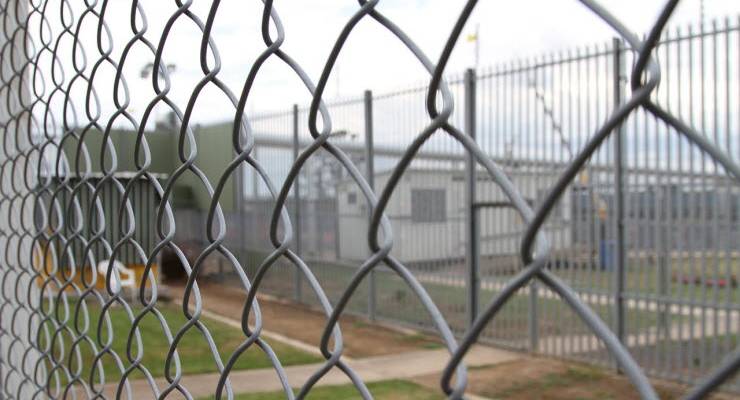
When I heard about COVID-19, and the Australian government’s plan to quarantine its own citizens on Christmas Island, my first thought was something I’d be saying to people for four years: if you don’t speak up against mandatory detention, one day you might find yourself locked up there too.
But then events escalated. One minute the message was “we should all go out to Chinatown for dinner”. The next, “there’s nothing to be afraid of”. And now, “DO NOT LEAVE YOUR HOME”.
I cannot leave home. I am in Villawood Detention Centre in Sydney, where the only measure has been a ban on visitors. This not only means I can no longer see my loved ones, but also my psychologist.
The visiting area used to be like a holy place for us detainees, where families used to get together, and for a couple of hours in that room, we could experience the love of our dearest. The visiting area is right next to my compound, so I used to hear the sound of families having a laugh together, kids playing with their fathers. Just that sound, even on a day I didn’t had a visit, used to bring peace to my heart.
We don’t have that anymore.
The announcement by the Australian Border Force felt like a dagger slowly lodged into our hearts, which to be honest hasn’t completely sunk in yet — the fact that we won’t be able to see our families, our partners, kids, loved ones, until “further notice”.
There is restrained anger amongst the detainee community, which so far has been limited to peaceful sit-ins. But I fear it will escalate; that as the days go by there will be a spike in self-harm and attempted suicide cases.
In detention we have zero control over our lives. The indefinite nature of detention is such that, even if you win your judicial review in the federal court, unlike criminal detention, you are still not released. The draconian nature of immigration laws and the so-called god powers the minister holds means that, effectively, you are only ever released when the minister wants.
Home Affairs Minister Peter Dutton has been selling to the Australian public that we are kept in detention so as to “keep Australians safe”. That irony died the day we saw on TV from detention a society tearing itself apart, fighting over toilet paper.
We saw the selfish individualism shown by the free folks.
That was in stark contrast to the values us detainees have lived by in detention over the years.
We have always had a sense of community in detention; that we are all in this together, and we live like a big family. There hasn’t been a single argument over toilet paper or any other commodity amongst the detainees.
The absolute isolation we suffer from in detention has caused a mental health pandemic, meaning there was a better chance of a detainee dying due to suicide than from catching the coronavirus.
A section of the detainee cohort has become totally resigned from life because of hopelessness, like my African neighbour, who doesn’t talk anymore.
Contrary to what the officials have been claiming publicly, us detainees are extremely vulnerable to coronavirus. Many of us have serious medical conditions. The compound I’m detained in is called Hotham, and it is dedicated to people with serious conditions.
One person has cancer. I have asthma, hypertension, respiratory conditions and other serious medical conditions.
Even immigration medical providers at International Health and Medical Services (IHMS) have identified me and some other detainees from my compound as high-risk patients, who need to be protected against coronavirus.
Most of the detainee population is illiterate, and it doesn’t help when, as was the case on March 24, a Serco official conducted a full 45-minutes class feeding us false and dangerous medical advice, including “that UV rays help kill coronavirus”.
As the crisis grows worse, I hope the government shows compassion and chooses the only safe and humane solution: to release us to our families or community detention.
Nauroze Anees, also known as Rozay, has been kept in detention since October 2016. He is currently being held in Villawood Detention Centre.









Crikey is committed to hosting lively discussions. Help us keep the conversation useful, interesting and welcoming. We aim to publish comments quickly in the interest of promoting robust conversation, but we’re a small team and we deploy filters to protect against legal risk. Occasionally your comment may be held up while we review, but we’re working as fast as we can to keep the conversation rolling.
The Crikey comment section is members-only content. Please subscribe to leave a comment.
The Crikey comment section is members-only content. Please login to leave a comment.